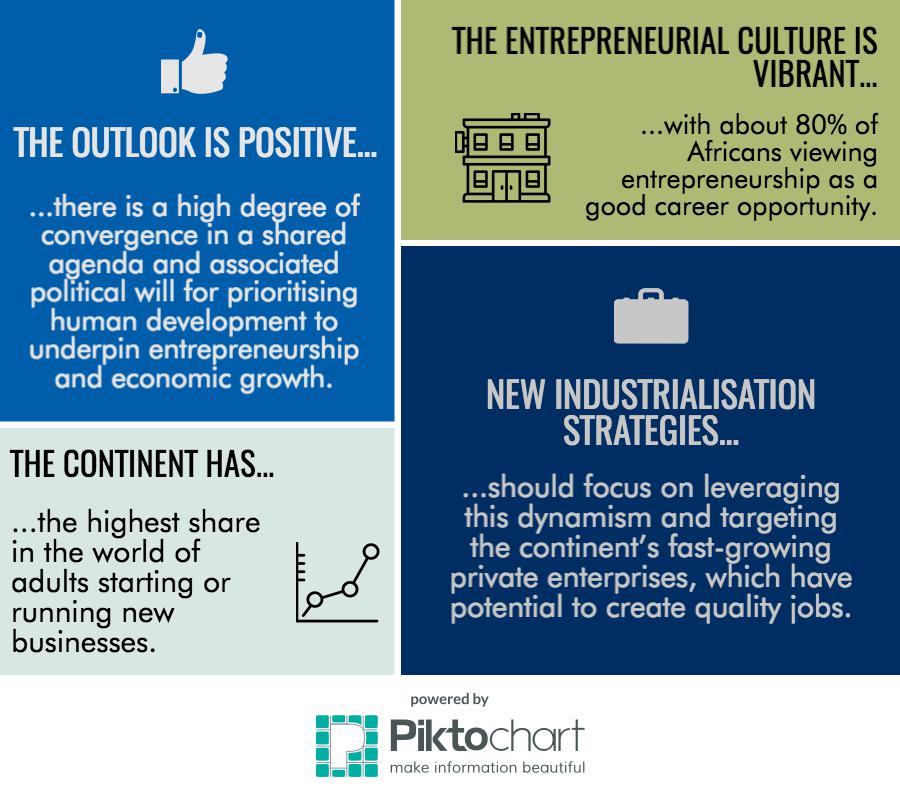Why BRM is Key for African Development
Business relationship management leads to success through strategic partnership.
In African culture, we have the term “Ubuntu,” which means, “A person is a person through other people.” In other words, nothing is achievable by working in isolation. Success is all about effective relationships–and when partnerships between government, business, and service providers are needed to make technology accessible and affordable throughout the region, the BRM capability becomes critical to success.
The continent of Africa has been a sleeping giant for ages but is quickly becoming one of the most exciting regions in the world.
According to the latest African Economic Outlook Report,[1]

[1] The AEO is a product of collaborative work by the African Development Bank, the OECD Development Centre and the United Nations Development Programme.
Africa is embracing technological disruption in a way that sets it apart from other continents.
One of the great advantages Africa has is that there is far less legacy to get in the way. Having lagged in innovation in the past, African countries are now better placed to leverage on technology (mobile technology especially), allowing them to leapfrog several development stages that are typical elsewhere.
What marks the digital revolution in Africa isn’t the technology that underpins it, so much as the growing affordability, accessibility, and, until recently, largely untapped demand that have made its advances so rapid. Africa is an early adopter rather than a follower.
Technology is already demonstrating how game-changing developments can rapidly impact business opportunities and public services. In areas like education, banking, agriculture, health, and transportation, the continent has been leveraging advanced techniques like mobile financial transactions and the first drone port.
However, business relationships remain immature as they stand. Partnerships between government, business, and providers are needed to make technology both accessible and affordable. Realising the potential value requires a better understanding of how to achieve objectives.
What marks the digital revolution in Africa isn’t the technology that underpins it, so much as the growing affordability, accessibility, and, until recently, largely untapped demand that have made its advances so rapid.
As the continent of Africa continues to make technological strides with the need for stronger business relationships, a strategic approach is needed for setting goals, developing capabilities, building trust, broadening access, fostering innovation, and ensuring value for everyone. Capitalising on these potential opportunities demands a complete rethink of business partner engagement and development strategies.
This strategic approach lies in BRM—because not only does it encourage collaboration, teamwork, and trusted relationships, but it promotes the idea of shared ownership for success.
To quote the BRMBoK, “Business relationship management stimulates, surfaces, and shapes [public sector and] business demand for products and services and ensures that the potential business value [improved public services and economic growth] from those products and services is captured, optimized, and recognized.”
Furthermore, in the African context, there is tremendous opportunity for BRM to leverage the youngest demographics with people hungry for change and success, especially when there are often no existing investments or infrastructures that inhibit change.
BRM can truly help drive success because it encourages strategic partnering. It recognises the significance of communicating clearly and building trust, and most importantly, it focuses on the end game—value for governments, commerce and citizens as well as for the provider.
To learn more about how business relationship management can add value to your organization within the continent of Africa, check out our upcoming BRMConnect Forum events in Cape Town and Johannesburg:
Gary Hardy, BRMP is the owner of IT Winners, an independent IT best practices consultancy and training company based in Cape Town, South Africa that focuses on increasing enterprise business value. Gary has over 40 years of experience in the IT industry and is recognized globally as an expert and thought leader in IT governance, business and IT convergence, and IT performance improvement.


